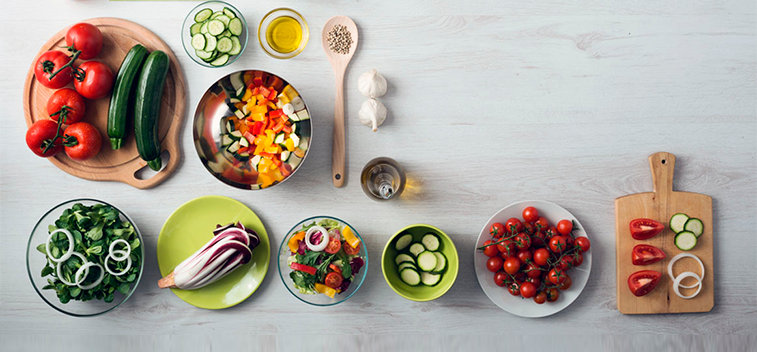
Almost all foods have some nutritional value, but some are so rich in nutrients such as vitamins, minerals, healthy fats and antioxidants that their nutritional power makes them very valuable in terms of potential health benefits. This is why they are called superfoods.
The key to good health is a varied and balanced diet in which vegetables and legumes have a strong presence, without forgetting that rest and exercise are also essential.
The majority of nutrition experts advise us to consume a diet rich in extra virgin olive oil, vegetables, legumes and citrus fruits, without excluding any other foods which may help to enhance our nutrient intake. Here is a list of such foods with notably high nutritional content:
- Extra virgin olive oil helps us to prevent cardiovascular diseases, cancer, arthritis, inflammation and premature ageing of the skin. It has great antioxidant potential and contains vitamin E, carotene and polyphenols. It is very easily digested and quickly assimilated into the organism.
- Legumes are rich in iron and minerals such as calcium and magnesium. They are also a good source of proteins, and while they are not as protein-rich as meat, they contain very little fat and plenty of fibre.
- Quinoa is a pseudocereal (non-grasses that are used in much the same way as cereals). Similar to a legume, it contains valuable protein and is rich in easily-digested fibre. It provides complex carbohydrates, does not contain gluten and is rich in amino acids.
- Leaf vegetables should be consumed as often as possible because they are highly alkalizing and provide us with chlorophyll, which helps to cleanse the body. Moreover, they are rich in amino acids, which are converted in proteins. They also contain omega fatty acids and are rich in fibre.
- Citrus fruits contain two special substances: hesperidin and antocyanin, which are useful as anti-inflammatories and strengthen the blood capillaries. The white fluffy layer beneath the skin of the fruit should not be completely removed when eating these fruits because it contains pectin. This substance is a special type of fibre that helps to block the absorption of cholesterol. This part of the fruit is also a source of rutin, which helps facilitate the absorption of vitamin C.
- Garlic reduces cholesterol and acts as a diuretic. In addition, it has anti-bacterial properties that can improve the immune system.
- Wild salmon is high in DMAE, astaxathin, omega 3 and essential fatty acids (which help to lower levels of bad cholesterol).
- Sardines, as oily fish, are rich in omega 3, which improves cardiovascular health and reduces inflammation in general. Eating the bones provides plenty of calcium and, being a small fish, it does not accumulate heavy metals such as mercury.
- Red fruits such as strawberries, cranberries, raspberries, currants and blackberries help the body to fight mental and physical ageing. In addition to an abundance of water, they contain vitamins, dietary elements and antioxidants (especially bioflavonoids), among other nutrients. These help to prevent and alleviate diseases such as hypertension, cardiovascular problems and infections.
- Dark chocolate can be beneficial to our health if consumed in small quantities, as pure as possible. It is a powerful antioxidant which helps reduce damage caused by free radicals. What's more, thanks to its high content of magnesium, it regulates levels of sugar, helps to keep calcium in the bones, balances gut flora, protects the cardiovascular system and the central nervous system.